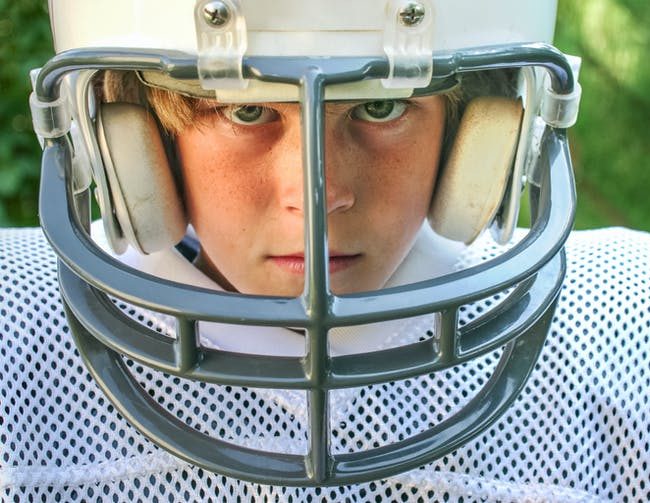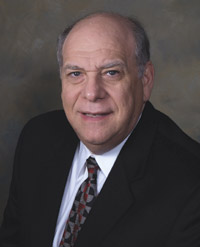Should Your Kid Play Football?

With what may be the most advanced and comprehensive center of its kind: The Methodist Hospital Concussion Center provides expert treatment and prevention of long term illness due to head trauma. It doesn’t hurt to have this facility in your backyard.
Seventy five percent of the people treated at the Methodist Concussion Center are athletes and 25 percent are from other injuries such as accidents. They treat people right after their concussion and then there is the period right after which is the post concussion syndrome where symptoms may last two weeks to two months, although some patients have problems for many months. The greater concern is in patients and athletes who have had concussions and there are long term problems that develop which can be chronic. Patients may develop Alzheimer’s like dementia that “develops down the line and we use to define down the line as 10-20 years after a concussion, but in some instances there have been clear cut cases that developed in only 2- 3 years,” according to Dr. Derman. In instances such as with Dave Duerson and other former pro football players who have committed suicide, studies have found long term problems that had developed. This change in the brain we more frequently find in boxers. Both the Dave Duerson study and Ray Easterling’s of the Atlanta Falcons findings were both consistent with having these changes in the brain. Most, but not all have shown these changes and The Methodist Concussion Center is looking to find if something predisposes an athlete to develop these problems down the road. Is there something in your genes that would make you more likely to have some problems. In Alzheimer families there are certain genetic markers that predispose that family into having a higher incidence of dementia. “It is not too far a stretch that if you have these markers you would be prone to suffer the symptoms,” according to Derman.
The Methodist Concussion Center is part of The Methodist Neurological Institute and is located in the world renowned Texas Medical Center. The backbone of the Center is Dr. Howard Derman, a neurologist. There is also a neuropsychologist, Dr. Kenneth Podell who has a special interest in concussion head injury. Their team also includes a neurosurgeon and a community liaison who works with athletic staff at area schools. We sat down with Dr. Derman who also serves as the Texans doctor and NFL concussion representative.
Would steroid use also contribute to some of the problems you see?
That’s a good question and certainly something we are trying to answer although it is hard to go back and find out if these players took steroids, but we are concerned with that as a risk factor.
I read a study that in a normal season a football player receives over 400 hits to the head? Is that true?
That is correct, but we must differentiate getting hit in the head and something significant enough that causes a concussion. There was a study done at the University of North Carolina where they put pressure monitors in the helmets of lineman to see how often there was a change in pressure with a blow to the head. During a two hour practice there were 70 instances where there was an increase of pressure registered in the sensors of the helmet. Fortunately, the majority are not associated with a concussion, but it is of concern, so we try to educate the coaches, players, trainers and parents about signs of concussions. What we do know and are most concerned about is if athletes don’t completely recover from their concussion and start playing again, those athletes are at a higher risk of developing problems down the line. So the first goal is to identify who has had a concussion, so that athletes can recover completely before they go back and play another game.
Are there athletes who continue playing if they have a concussion or do they know the concussion symptoms?
Sometimes coaches are not sure and players won’t say anything and may say let’s just finish the game and see what happens. There are a constellation of symptoms including headaches, vomiting, blurry vision, slowness in response, sleepiness, and an inability to concentrate and if an athlete has any of these issues during the game it should be recognized by the trainer or frankly the other teammates.
Do you recommend testing throughout the season?
There is a computerized test called the IMPACT test. This is a test administered to professional and student athletes before the season starts so we have a baseline of where the athletes are. If they sustain a concussion during the season we have a baseline to compare it to. We repeat the IMPACT test and see what it looks like and if there are changes then we follow the patient with additional testing to track their improvement. Our goal is to now go to the high schools and junior high schools to administer the IMPACT tests before the season starts. To date, the Methodist Concussion Center has provided approximately 5,000 baseline tests at Houston-area middle and high schools.
Is there a connection between recent suicides and hits taken to the head?
That’s a very important question and I will try and answer that in a few different way. They often have a cognitive and memory issues beyond normal depression..The other interesting thing is that virtually all of the professional athletes who have taken their lives have killed themselves with a gunshot to the chest and not to the head. We believe the athletes are conscious of what they are doing.
Can you get concussions with soccer and lacrosse injuries?
By far the second highest amount of injuries of head trauma are young women from playing soccer. From the heading and head to head collisions. There is a lot of discussion if helmets should be used in soccer. We don’t think that helmets will help cut down concussions in soccer based on scientific evidence.
Now it is taught for football players to not lead with their heads. Has that helped cut down injuries?
First of all leading with your head is not a good idea obviously. It is interesting to look at football injuries relative to positions. Most frequently of course are quarterbacks then linebackers followed by receivers and backs and then lineman. The way football is played now is that lineman are suppose to hold the blockers so linebackers are expected to make the tackles.
Is the NFL doing enough to combat this problem?
Over the last three to four years, the NFL has become more vigilant about concussive head injuries. There has always been concern on the league’s part about any injuries, but clearly concussion has become a much bigger issue recently. I am the team physician for the Texans managing concussion issues and each NFL team has a physician involved with concussion management. The NFL in conjunction with each team’s physician is ramping up research and has made money available to do that. The problem is as more and more athletes are retiring the problem gets bigger and bigger. You have to start somewhere and overall I think the response has been good, but a lot still needs to be done.
















